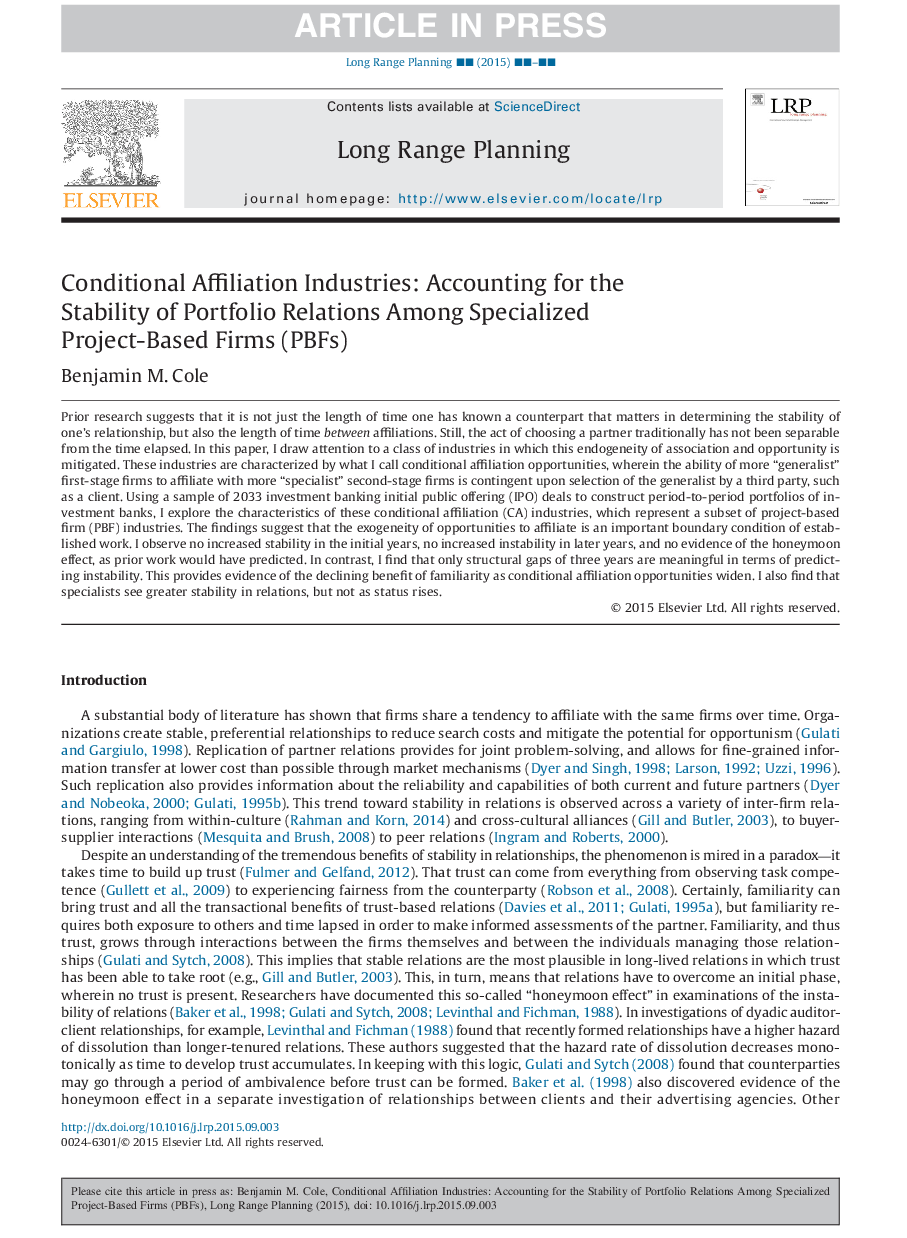| Article ID | Journal | Published Year | Pages | File Type |
|---|---|---|---|---|
| 5110313 | Long Range Planning | 2016 | 17 Pages |
Abstract
Prior research suggests that it is not just the length of time one has known a counterpart that matters in determining the stability of one's relationship, but also the length of time between affiliations. Still, the act of choosing a partner traditionally has not been separable from the time elapsed. In this paper, I draw attention to a class of industries in which this endogeneity of association and opportunity is mitigated. These industries are characterized by what I call conditional affiliation opportunities, wherein the ability of more “generalist” first-stage firms to affiliate with more “specialist” second-stage firms is contingent upon selection of the generalist by a third party, such as a client. Using a sample of 2033 investment banking initial public offering (IPO) deals to construct period-to-period portfolios of investment banks, I explore the characteristics of these conditional affiliation (CA) industries, which represent a subset of project-based firm (PBF) industries. The findings suggest that the exogeneity of opportunities to affiliate is an important boundary condition of established work. I observe no increased stability in the initial years, no increased instability in later years, and no evidence of the honeymoon effect, as prior work would have predicted. In contrast, I find that only structural gaps of three years are meaningful in terms of predicting instability. This provides evidence of the declining benefit of familiarity as conditional affiliation opportunities widen. I also find that specialists see greater stability in relations, but not as status rises.
Related Topics
Social Sciences and Humanities
Business, Management and Accounting
Business and International Management
Authors
Benjamin M. Cole,
